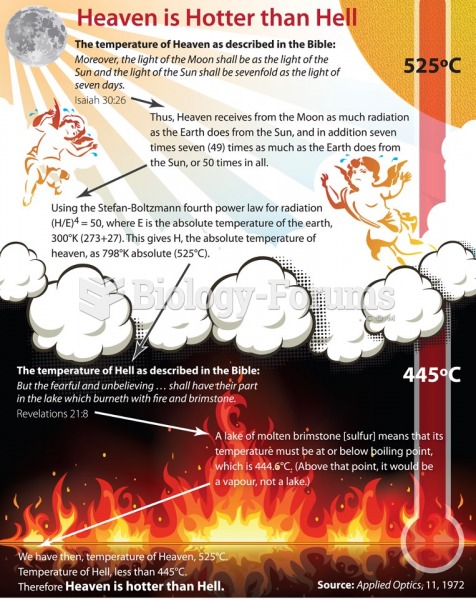|
|
|
Did you know?
Elderly adults are living longer, and causes of death are shifting. At the same time, autopsy rates are at or near their lowest in history.
Did you know?
Your heart beats over 36 million times a year.
Did you know?
Asthma attacks and symptoms usually get started by specific triggers (such as viruses, allergies, gases, and air particles). You should talk to your doctor about these triggers and find ways to avoid or get rid of them.
Did you know?
The FDA recognizes 118 routes of administration.
Did you know?
Limit intake of red meat and dairy products made with whole milk. Choose skim milk, low-fat or fat-free dairy products. Limit fried food. Use healthy oils when cooking.
 Examples of USP labels Source: Courtesy of Novartis Pharmaceuticals Corporation and Mallinckrodt Pha
Examples of USP labels Source: Courtesy of Novartis Pharmaceuticals Corporation and Mallinckrodt Pha
 In The Gross Clinic (1875), by Thomas Eakins, Professor Samuel Gross’s team of surgeons cuts through
In The Gross Clinic (1875), by Thomas Eakins, Professor Samuel Gross’s team of surgeons cuts through





